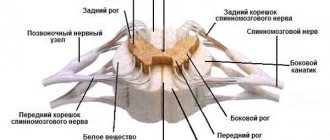Imagine, you find yourself on the shores of the Mediterranean Sea, a pleasant wind blows in your face, waves hug the coast, now further away from you, now closer to you, two children are running nearby with their parents, birds with large wings are flying, cool sand under your feet, in a word , you are enjoying. Suddenly you seem to wake up, although this is not a dream, everything is for real, but you clearly catch this feeling - awakening. It’s as if you catch yourself at this second, cling to a new sense of reality, you wake up. But the trouble is, you don’t understand at all how you ended up in this fabulous place, where this landscape came from, why these children scream with joy, and the birds fly lower and lower...
The situation described above is a clear example of a dissociative fugue. Why does this phenomenon have such an unusual name? How did it originate, what does it mean, which people have experienced a dissociative fugue? Let's try to understand all these issues in our article.
What is a fugue
Dissociative fugue is considered a disorder that separates a person from previous memories of past experiences, feelings, or people in their life. People suffering from it have no memory of their identity or any details of their lives.
Dissociative fugue describes the disease as follows: a split of consciousness occurs, while simultaneously reproducing actions. At the same time, people around, seeing the patient, do not understand that something is wrong with him. A common example of dissociation is driving a car and missing your turn because you are daydreaming. Thoughts inside split the consciousness about where the car was at the moment. The realization that a person has missed his turn usually puts him back on the opposite route. Thus, dissociation can occur in healthy people, but it does not last as long.
Background
Fuga is translated from Latin as “flight”. The American psychologist, philosopher, one of the founders of pragmatism and functionalism, William James, who first spoke about this concept, in 1890 described the case of one of his contemporaries, the priest Ansel Bourne. According to the story, one January day, Ansel withdrew a certain amount from his bank account, which was intended to pay for land in Greene (the priest’s birthplace), paid several bills, got into a horse-drawn carriage and went to Pawtucket (Rhode Island, USA). According to Ansel, that was the last thing he remembered. Over the next two months, both relatives and the police searched for the priest in his native place, but no one was able to find the missing man.
At the same time, in Norristown, Pennsylvania, a man named A. J. Brown began renting a small store that sold office supplies along with candy, fruit, and other small items. On March 14, the same man woke up in a panic, called his neighbors and tried to find out how he ended up in this place and what kind of place it was. At the same time, the man claimed that his name was Ansel Bourne, only yesterday he took money in Providence, and he knew absolutely nothing about trading. The priest lost noticeable weight during this period, losing 20 pounds, and the thought of owning his own candy store shocked him so much that he refused to go there anymore.
This story is a famous case of dissociative fugue, which is a sudden move to an unfamiliar place in which a person seems to become a different person and begin a new life. However, at the same time, universal memory is preserved, that is, relating to general information, for example, art, society, etc., as well as the ability to learn new things.
Is it possible
After severe stress, some part of the memory is blocked and a dissociative fugue occurs. Examples from life:
- The 57-year-old husband and father of two, a Boy Scout, left the garage near his office and disappeared. Six months later he was found, living under a new name in a Chicago homeless shelter, not knowing who he was or where he came from.
- A middle-aged woman buys a newspaper to find out the date and what city she is in, and then contacts social services to determine her identity. As it turned out later, she had been considered missing for 5 years.
- Agatha Christie was perhaps the most famous writer of all time. In 1926, on the evening of December 3, 36-year-old Christie mysteriously disappeared from her home in England. The next morning, her abandoned car was found, but she was nowhere to be found. Before her disappearance, her husband Archibald was threatening divorce. On December 14, Christie was found alive and registered under the name Teresa Neil at the Harrogate Hotel. She claimed that she did not know how she ended up there. Some believe that this disappearance was a performance for PR and a reunion with her husband. However, there is evidence that Christie was in a fugue state and actually lost her memory. On the day of her disappearance, people saw her and stated that she was not wearing warm clothes, despite the cold season, she seemed confused and discouraged. There is speculation that her impending divorce and the recent death of her mother have caused her to become deeply depressed. Agatha Christie died in 1976 and took the truth about what really happened with her to the grave.
Reflection in culture
The phenomenon of dissociative fugue has become the object of many cultural areas. For example, in cinema, this theme is revealed in such films as “Planet Ka-Pax”, “Lost Highway”, “House of Dreams”, “United States of Tara”.
In addition to the fact that dissociative fugue is a form of psychological disorder, there is also a musical form that also serves as the name of musical works with this form. A notable feature of such works is the composer’s development of one main theme, a melody, followed by repetition (“escape”) of this melody in other tonic voices.
One of the famous works of Johann Sebastian Bach “Prelude and Fugue in C major” is presented below at the link:
We recommend that you listen to this piece of music not only because this example of musical form will to some extent allow you to better understand the essence of such a phenomenon as dissociative fugue, but also because Bach's music will allow you to relax and unwind a little. After all, the main reason for the appearance of dissociative disorder is still severe stress. Remember that the most important thing is not getting rid of the consequences of a negative event, but preventing the occurrence of its causes.
By the way, in order to become more stress-resistant, learn to deal with apathy, as well as fear and anxiety, we recommend that you complete our six-week online program “Mental Self-Regulation”. By devoting only 25-30 minutes a day to classes, you will forget about procrastination and easily begin to take the first steps in any business.
Sometimes shocks happen in life: we learn about the death of loved ones, we are fired from an interesting job, a loved one turns out to be distant and ununderstanding, friends betray us, and plans collapse under the pressure of circumstances. All this and much more is part of a certain period of our life, and we must be strong at this time so as not to lose ourselves, not to consign to oblivion all the joy and love that actually also exists in our lives and is replete with bright colors, only here negative circumstances added a little darker tones. But remember: truly beautiful paintings combine the harmony of both light and dark tones. In this life you cannot do without sadness, but know how to move away from it.
We wish you a good mood!
We also recommend reading:
- Storytelling
- Culture shock and how to overcome it
- Duality of personality: me or us
- Worldview as a life path
- How to find time to study and not give up halfway
- “Have you seen it” or Where does the deja vu effect come from?
- Medici effect
- Gratitude Skill
- Advice from a 16th century priest on self-development
- The butterfly effect and its philosophical meaning
- 10 Strangest Experiments in the History of Science
Key words:1Self-knowledge
What to do
Patients experiencing dissociative fugue should be under close medical supervision. The patient's medical history should be reviewed to rule out an organic cause for the disease (eg, epilepsy or other personality disorder). If no cause is found, a psychologist or other mental health professionals will interview the patient and conduct psychological evaluations. These assessments may include dissociative experiences, a structured clinical interview for a disorder called dissociative fugue. The causes and symptoms of the disease may occur with the use and abuse of certain medications and illegal drugs. For example, patients with alcohol addiction are often in a state of “blackout”, while performing some actions, and sometimes making unplanned trips; a striking example of such a dissociative fugue is the film “Enjoy Your Bath.”
Multiple personality.
Also on topic:
MENTAL HEALTH
The condition of multiple personality was described back in 1840 by a doctor who treated a painful 11-year-old girl with hypnosis and observed the appearance of two personalities in her. Subsequently, various variants of this disorder were described. Split personality has been studied earlier than others and most often occurs, in which one personality replaces another, and the initial one does not have access to the memories of the second, and the second has the memories of both. Subsequently, more complex cases were reported, in some of them the number of personalities resulting from the splitting of the original one exceeded 100. Usually, at least two personalities control the patient’s behavior, and the transition from one to another occurs almost instantly. Interactions between individuals can be very complex; in some cases, they do not know about each other's existence. Personalities can be of different ages and genders, very different and even opposite in external behavioral manifestations.
Although this disorder usually begins in childhood or adolescence, due to various masking symptoms it is often recognized in adults. Recent studies have shown that in almost every case there was sexual or other violence.
Dissociative fugue: symptoms of the disease, prevention
It is not easy to explain the cause of the fugue state, but people who suffer from the disorder have usually had some kind of serious trauma or stress in their lives. War veterans or people who have suffered extreme violence or disaster scenarios may be more prone to these symptoms. Some psychologists believe that fugue sufferers may have unresolved conflict in their lives, which can add to the likelihood of abnormal dissociation. It is possible that drug abuse may contribute to the development of this disease.
How common is the disease?
Dissociative fugue is relatively rare, with a prevalence rate of 0.2% in the general population. The length of a fugue episode is believed to be related to the severity of the stress or trauma that caused it. In most cases, it appears as single episodes without repetition. In some cases, a person will not remember events that occurred during the fugue state. In other situations, amnesia associated with the traumatic event that initiated the fugue may persist to some extent after the episode is completed. Prevention of this disorder can be a conversation with a psychotherapist after a tragic episode in life, good family support and close, trusting relationships with friends. If there is no way out for traumatic thoughts, the brain blocks the memory for protection and amnesia occurs.
Symptoms
To make a diagnosis, in addition to the general signs of dissociative disorders, additional criteria must be met:
- an attempt was made to unexpectedly leave and distance oneself from the usual social environment;
- forgetting the episode, which corresponds to 2 dissociative amnesia.
If an organic brain disorder is the cause of the disease, behavior is not determined by a stress factor and is not as complex and socially adaptive as it is in psychogenic fugue. The situation is similar with fugue during temporal lobe epilepsy.
Psychology according to Freud
Freud suggests that psychogenic amnesia is an act of self-preservation, where the alternative may be traumatic anxiety or even suicide. Unpleasant, unwanted or psychologically dangerous memories are blocked from entering consciousness. Neurologically, normal autobiographical memory processing is inhibited by imbalances of stress hormones such as glucocorticoids and mineralocorticoids in the brain, especially in regions of the limbic system involved in memory formation.
Such repressed memories may be recalled spontaneously by a particular smell, taste, or other identifier, years or decades after the event. Because this is due to psychological rather than physiological causes of psychogenic amnesia.
Dissociative fugue: symptoms, treatment
When treating dissociative fugue, the focus should be on helping the patient come to terms with the traumatic event or stress that caused the disorder. This can be achieved through various types of interactive treatments that explore the trauma, and work must also be done to build the patient's coping mechanisms to prevent further recurrence. Some therapists use cognitive therapy, which focuses on changing maladaptive thinking patterns. It is based on the principle that inappropriate behavior, in this case a fugue episode, is initiated by inappropriate or irrational thinking. The cognitive therapist will try to change these thinking patterns (also known as cognitive distortions) by exploring the reasonableness and validity of the assumptions behind them with the patient.
Medication may be a useful adjunct to treat some of the symptoms a patient may experience in relation to dissociative episodes. In some cases, certain antidepressants or anti-anxiety medications may be prescribed.
Step-by-step diagnostic algorithm
Diagnosis and treatment of the disease are complicated by the fact that the patient never seeks help on his own , as he believes that everything is fine. During short-term fugues, they can also go unnoticed.
Most often, a patient is brought to the doctor by relatives who discovered him while searching in another city or country - with the help of the police or information from social networks.
The patient needs consultation with a psychologist and psychiatrist . Also, to exclude brain damage and other diseases, the following are prescribed:
- MRI;
- Ultrasound of the head and neck;
- general urine and blood tests;
- analysis for the presence of narcotic and toxic substances in the blood.
In the absence of pathologies, a psychiatrist and psychologist work with the patient.
Treatment with therapy
Creative therapies (art therapy, music therapy) allow patients to express and channel thoughts and emotions into “safe” channels. They empower the patient by encouraging self-knowledge and a sense of control.
Group Therapy - A therapist or counselor may be helpful in supporting the patient on an ongoing basis. It also provides the patient with opportunities to gain self-confidence and interact with colleagues in a positive way.
Family therapy can be part of the treatment regimen, both in exploring the trauma that caused the fugue episode and in educating the rest of the family about the illness.










